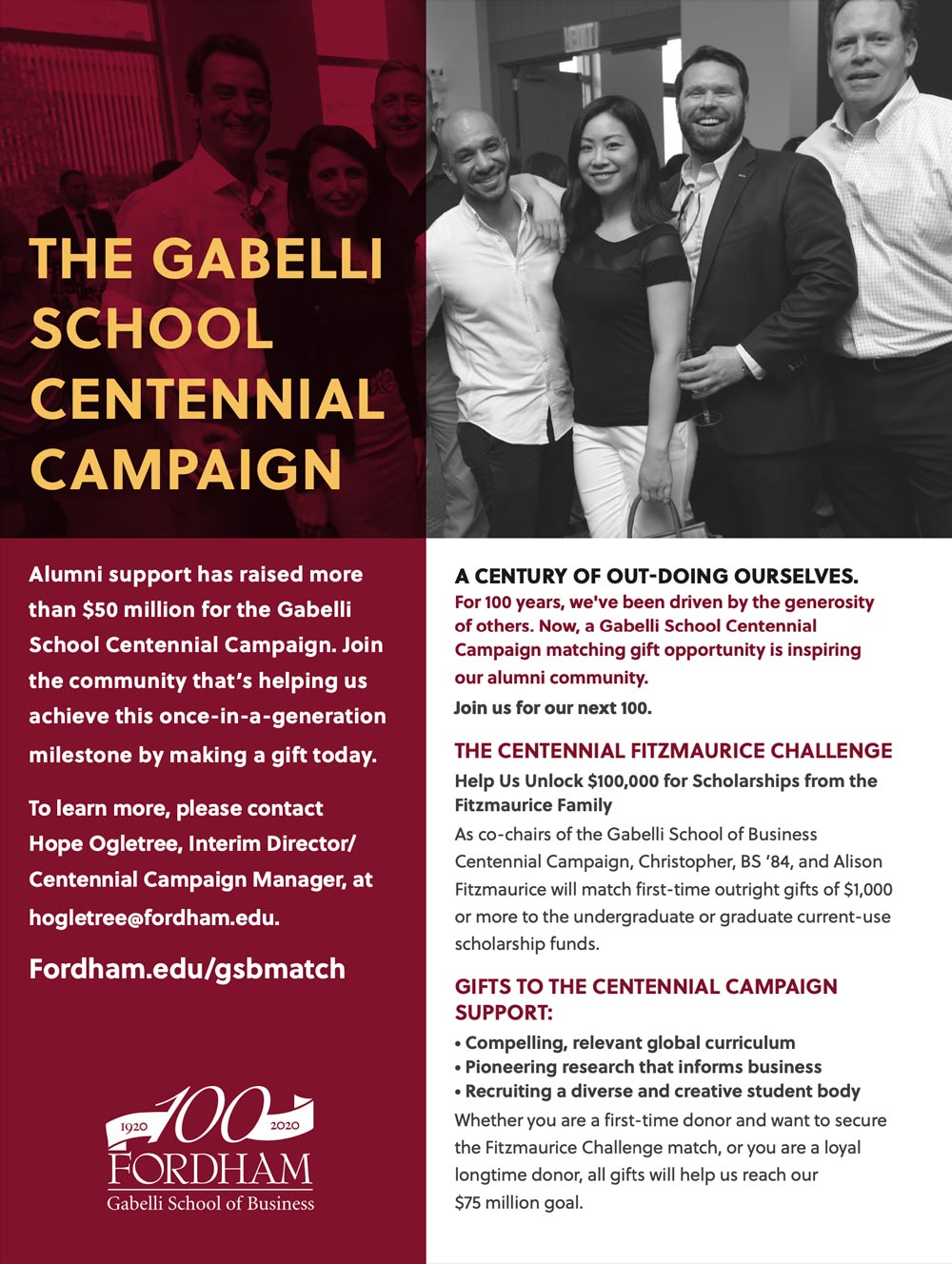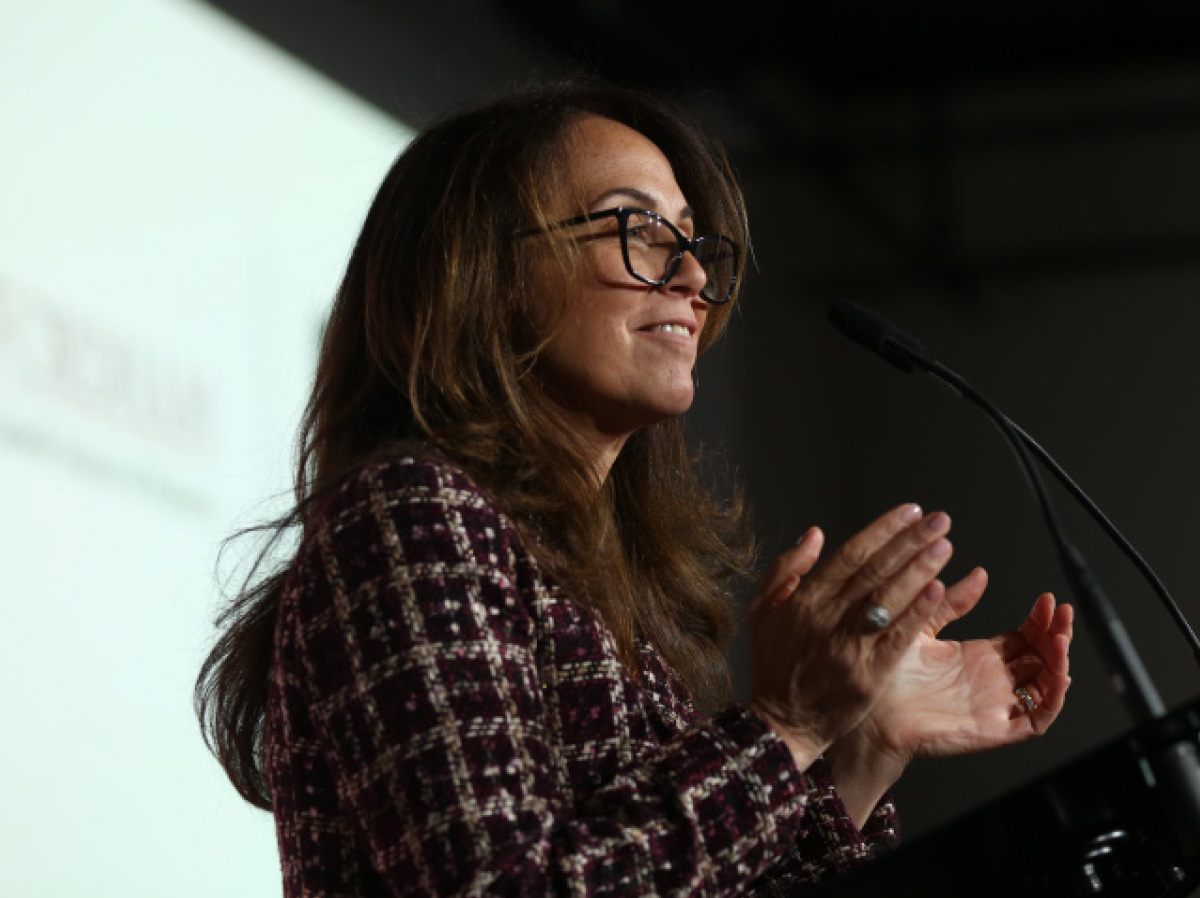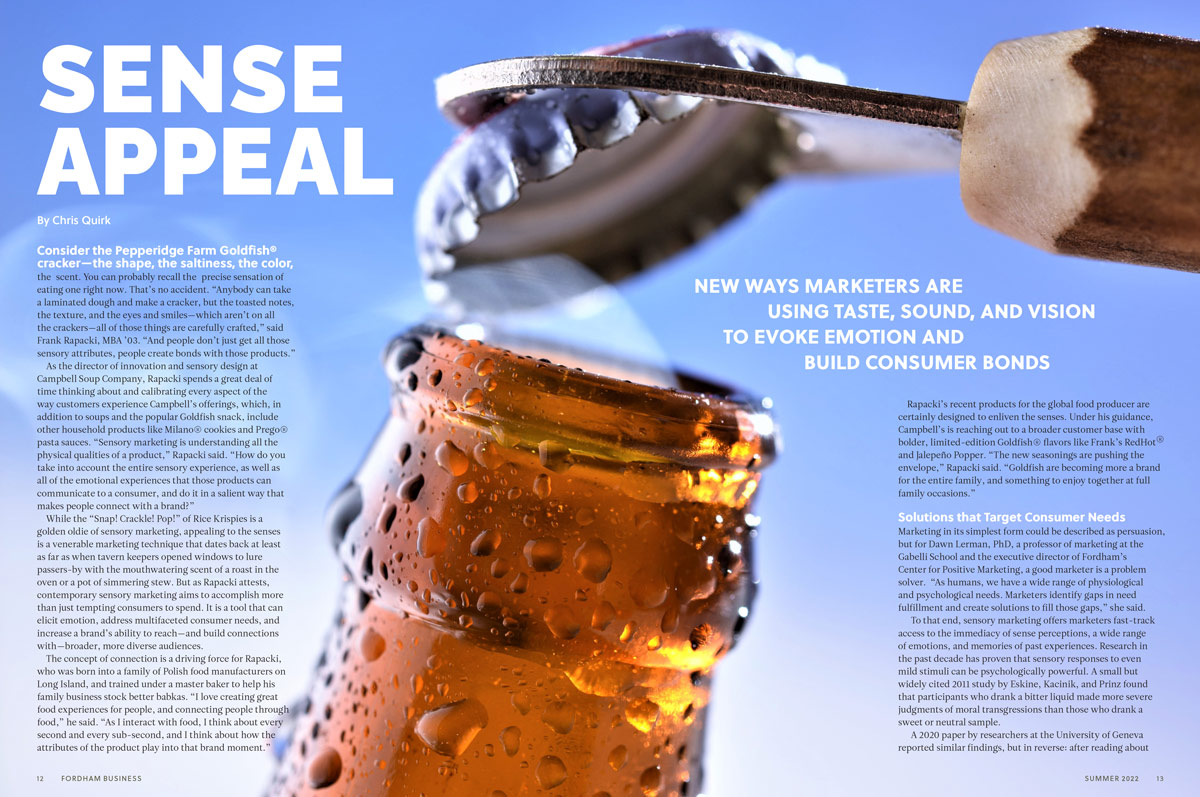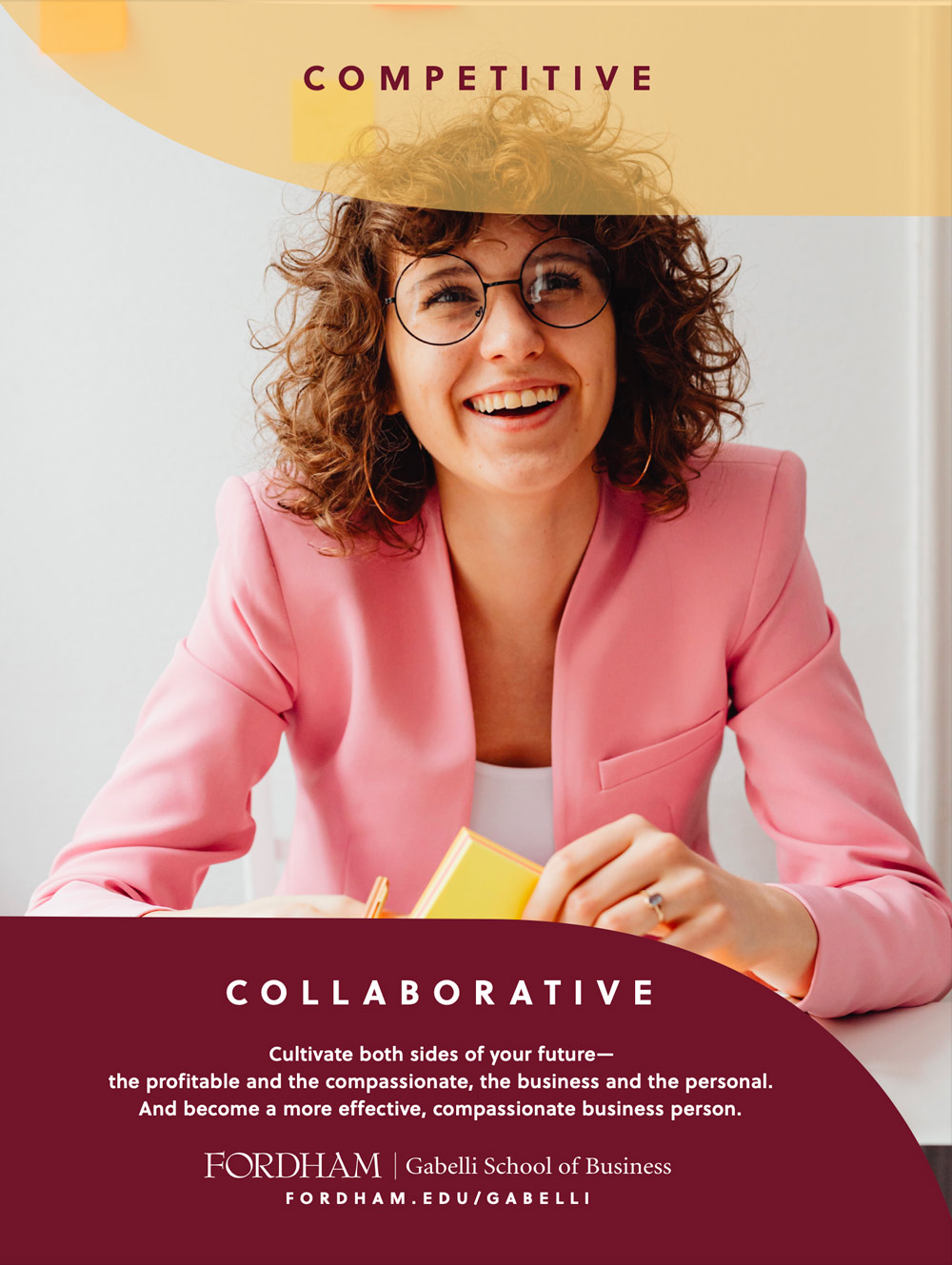of the dean
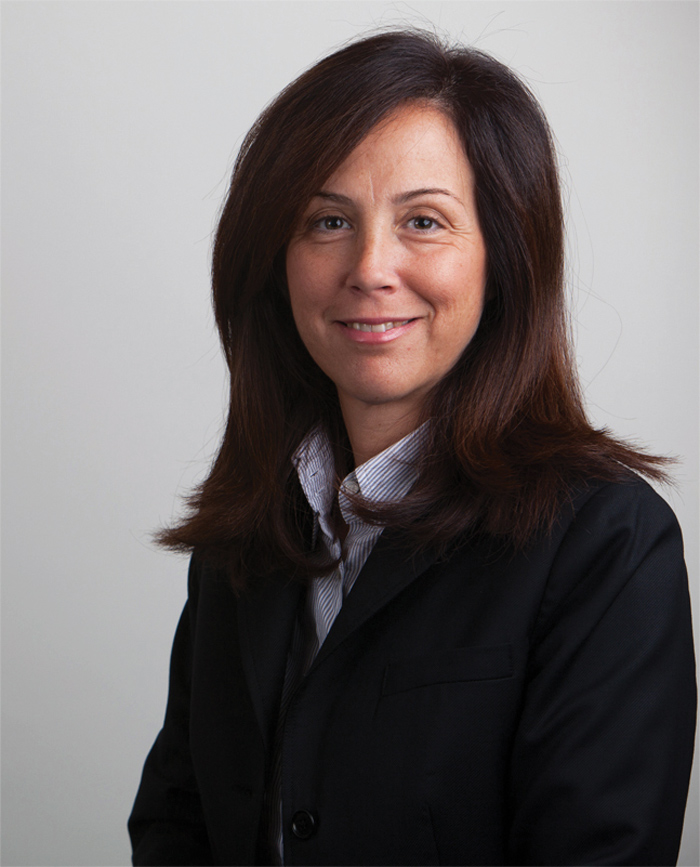
Over the past 15 years, so much has changed in business.
The business world also faced unprecedented challenges. We experienced the longest recession since World War II and a global pandemic that set the world still, upending supply chains, threatening companies and livelihoods, and forever reshaping our global workforce.
As my tenure as dean of the Gabelli School of Business comes to a close, I realize how much business education at Fordham has transformed, too. We have made great strides in preparing students to become compassionate business leaders, and we have celebrated many milestones along the way.
Masthead
Donna Rapaccioli, PhD
Dean, Gabelli School of Business
Executive Editor
Michael Benigno
Managing Editor
Claire Curry
Creative Director
Ruth Feldman
Joe DeLessio, FCLC ’06
Jenny Keeler
Kelly Kultys
Nicole LaRosa
Chris Quirk
Gabrielle Simonson
Fordham University President
Joseph M. McShane, S.J.
Provost
Dennis C. Jacobs, PhD
Fordham Business welcomes your comments and suggestions. Email gsbnews@fordham.edu.
Does Fordham have your correct contact information? If not, please contact the Office of Alumni Relations at 800-314-ALUM or
alumnioffice@fordham.edu. Or update your profile at forever.fordham.edu.
Opinions expressed in this publication may not necessarily reflect those of the Fordham University faculty or administration. © 2022, Fordham University Gabelli School of Business
Donna Rapaccioli, PhD
Dean, Gabelli School of Business
Executive Editor
Michael Benigno
Managing Editor
Claire Curry
Creative Director
Ruth Feldman
Contributing Writers/Reporters
Joseph DeLessio, FCLC ’06
Jennifer Keeler
Chris Quirk
Gabrielle Simonson
Stevenson Swanson
Jennifer Woolson
Fordham University President
Joseph M. McShane, S.J.
Provost
Dennis C. Jacobs, PhD
This publication is published by the Office of the Dean of the Gabelli School of Business, with offices at 441 E. Fordham Road, Bronx, NY 10458 and 140 W. 62nd Street, New York, NY 10023.
Fordham Business welcomes your comments and suggestions. Email gsbnews@fordham.edu.
Does Fordham have your correct contact information? If not, please contact the Office of Alumni Relations at 800-314-ALUM or
alumnioffice@fordham.edu. Or update your profile at forever.fordham.edu.
Opinions expressed in this publication may not necessarily reflect those of the Fordham University faculty or administration. © 2021, Fordham University Gabelli School of Business
Contents
As Donna Rapaccioli, PhD, steps down from her role as dean of the Gabelli School of Business and returns to teaching and research, she leaves behind a legacy of growth and transformation that maps the course for the future of business education at Fordham.
Students and leading corporations in New York City benefit from internship programs, competitions, and research and consulting projects made possible by the Gabelli School’s deep connections with industry.
What’s the way to consumers’ hearts? The five senses. Here’s how marketers are building brand loyalty by eliciting emotions through taste, sound, and vision.
Contents
As Donna Rapaccioli, PhD, steps down from her role as dean of the Gabelli School of Business and returns to teaching and research, she leaves behind a legacy of growth and transformation that maps the course for the future of business education at Fordham.
Students and leading corporations in New York City benefit from internship programs, competitions, and research and consulting projects made possible by the Gabelli School’s deep connections with industry.
What’s the way to consumers’ hearts? The five senses. Here’s how marketers are building brand loyalty by eliciting emotions through taste, sound, and vision.
Quotables


News
Introducing the New O’Shea Center for Credit Analysis and Investment

The center is dedicated to educating students, supporting alumni, and collaborating with industry leaders across the global credit markets. It was founded with $2 million in gifts—$1 million from Bob O’Shea, BS ’87, and his wife, Michele, FCRH ’88. The second came from Michael Gatto, a partner at Silver Point Capital, a Connecticut-based investment firm co-founded by O’Shea. Gatto, who is also an adjunct professor at the Gabelli School, will serve as the center’s director.
Donna Rapaccioli, PhD, dean of the Gabelli School, said the center will enable the school to integrate credit analysis into the curriculum and to impact the credit industry by serving as a center of excellence.
New Offerings in ESG Literacy and Sustainability Reporting
Thanks to a collaboration with the Value Reporting Foundation, the new course, titled Sustainability Reporting and SASB Standards, allows students to learn Sustainability Accounting Standards Board (SASB) principles through case studies, data sets, guest speakers, and other resources. At the end of the course, students are prepared to take the Fundamentals of Sustainability Accounting (FSA) Level 1 certification exam.
Sustainability accounting is how a company’s social and environmental impacts are measured, analyzed, and reported.
“Sustainability disclosures are the future of reporting information,” said Barbara Porco, PhD, clinical professor and associate dean of graduate studies at the Gabelli School, who is an instructor for the course. “We’re preparing students for the future.”
Students learn how sustainability issues can impact a company’s value and how to integrate data on ESG issues into reports, corporate strategy, and investment analysis.
The Best Buy for a New Generation
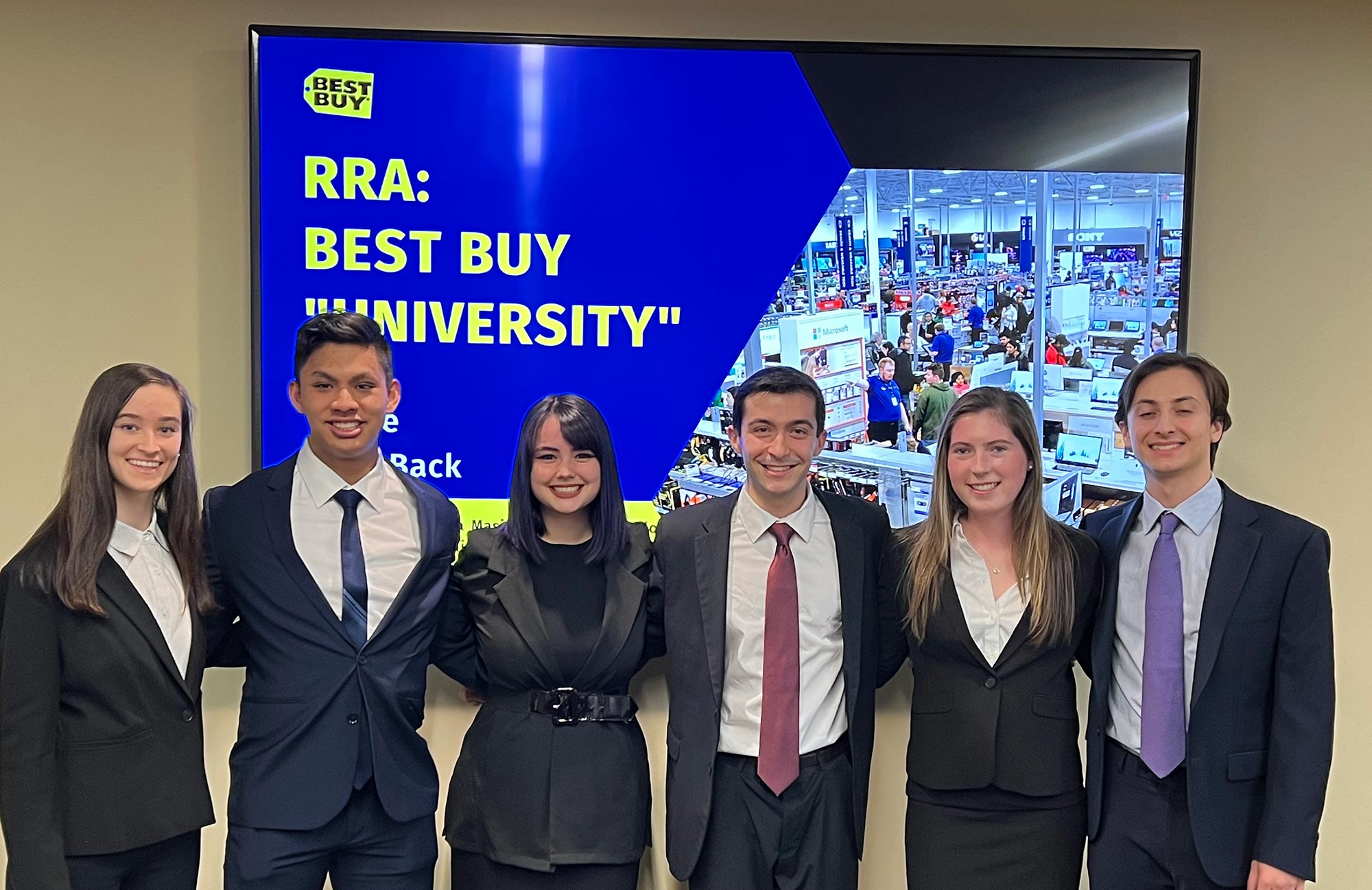


The Consulting Cup is an annual competition in which teams of sophomores identify a challenge faced by a major company and come up with a creative fix.
While Best Buy has traction with many generations of consumers, the students’ research revealed a gap among their own Generation Z. A large Best Buy store sits just one-tenth of a mile from the Rose Hill campus, but no one they knew at Fordham had ever been inside.

Responsible Business Coalition Pilots Impact Index
What’s the story behind a piece of clothing? Who makes it, how is it made, and what types of materials are used? And what’s the easiest way to provide consumers with that information? Answering those questions are the main goals of a new Impact Index developed by the Gabelli School’s Responsible Business Coalition.
“The Impact Index came out of conversations with brand and retail CEOs wanting a framework to highlight ESG standards,” said Frank Zambrelli, the executive director of the coalition, which includes a network of executives, researchers, nonprofits, and educators. “Consumers have decided they want to know what they’re eating or putting on their body or investing in and the impact of those elements.”
The coalition worked in partnership with Accenture, a professional services company, 30 international brands and retailers, and Vogue magazine to develop a framework and label that brought together “what the consumers wanted, what the brands and retailers were able to provide, and what the science-based communities deemed to be important,” Zambrelli said.
Father McShane:
A Legacy of Transformation
who has led Fordham University for nearly two decades, fostering one of the most remarkable periods of sustained growth in the 181-year history of the Jesuit University of New York and providing steady, decisive stewardship amid the coronavirus pandemic, will step down as president on June 30. On April 27, Fordham named the new campus center at Rose Hill in his honor.
“It has been a blessing to work with so many talented and devoted faculty and staff, and with more than a hundred thousand gifted and community-minded students,” he said.
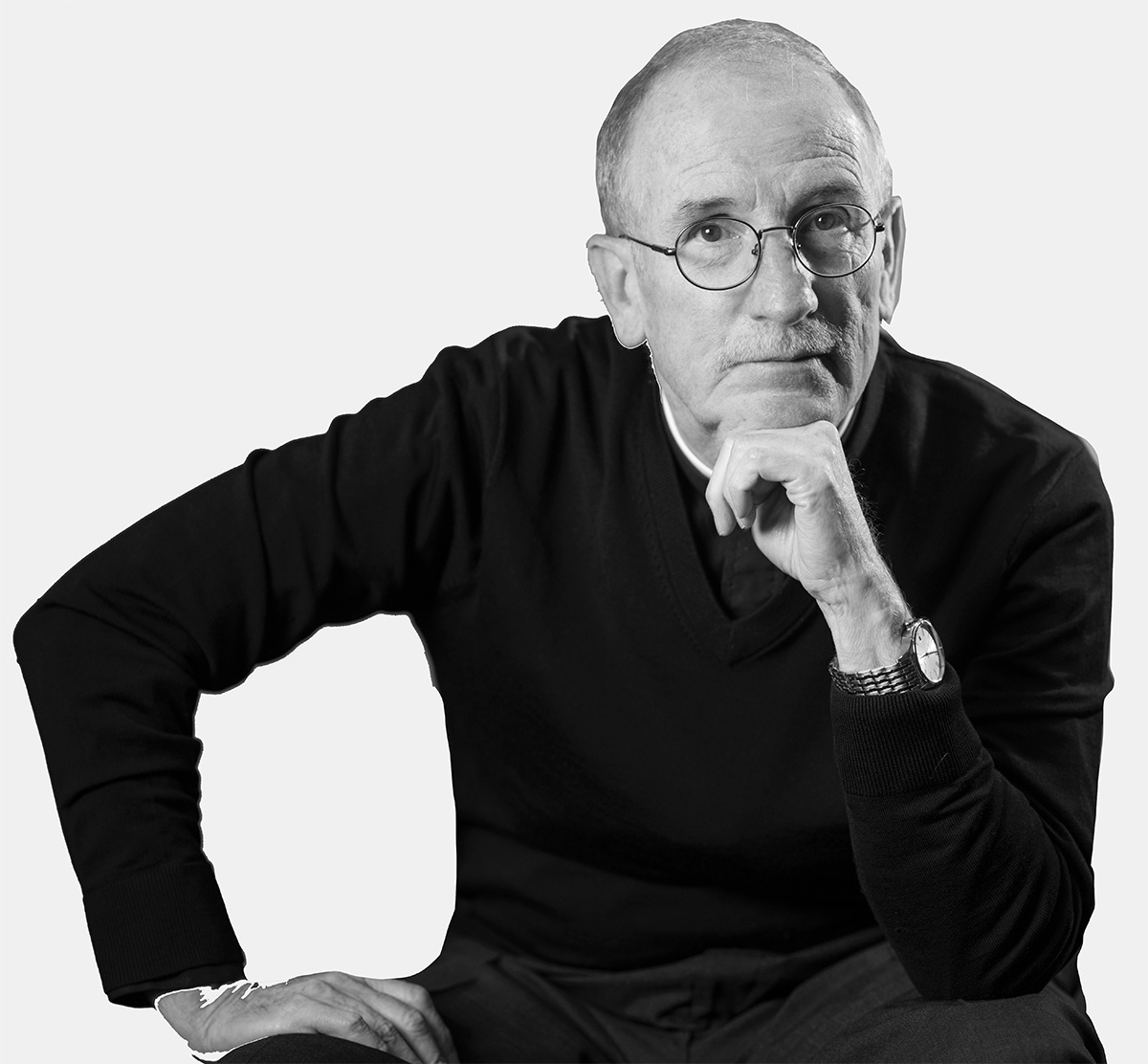
Father McShane:
A Legacy of Transformation
who has led Fordham University for nearly two decades, fostering one of the most remarkable periods of sustained growth in the 181-year history of the Jesuit University of New York and providing steady, decisive stewardship amid the coronavirus pandemic, will step down as president on June 30. On April 27, Fordham named the new campus center at Rose Hill in his honor.
“It has been a blessing to work with so many talented and devoted faculty and staff, and with more than a hundred thousand gifted and community-minded students,” he said.
CLIMB Summit Spotlights Diversity, Equity, Inclusion, and Belonging
“We hope that [the event] is a reflection of how important we feel this community is,” said Lawrence Mur’ray, senior assistant dean of graduate admissions and advising. “It is our goal to commit to cultivating a community of engagement.”
Kicking off the day were keynote speakers Lance LaVergne, chief diversity officer and senior vice president of global talent acquisition at the global fashion company PVH Corp., and Bliss Griffin, MBA ’19, entertainment inclusion consultant and a current student at Fordham School of Law, who discussed diversity, sustainability, and the challenges those with marginalized identities face when entering today’s workforce.
News Bits
Top 20 U.S. News Rankings
Centered in Diversity
Innovation Reigns
Sports Talk
A Growing Network
Top 20 U.S. News Rankings
Centered in Diversity
Innovation Reigns
Sports Talk
A Growing Network
Messages of Faith in Raised Print

“It hit me immediately,” Fallon said. “This is why we do it and why it’s so very important. It’s that type of work; you’re touching individuals deeply and directly. Our tagline is, ‘We provide faith and inspiration in Braille and audio,’ but it’s our patrons who are the inspiration.”
Fallon’s move to the Xavier Society followed a 30-plus-year career at Standard & Poors where he started out after earning a bachelor’s degree in finance and an MBA at Fordham. He spent most of his time in the public finance group doing bond ratings on state and local governments and larger nonprofits. After several years in New York, he moved to Texas to open S&P’s Dallas office. At the time, he and his wife Maureen were busy raising four children. Fallon kept close ties with his alma mater, and his daughter Emily, FCRH ’13, is an alumna of Fordham College at Rose Hill.
Paving the Way for First-Generation College Students
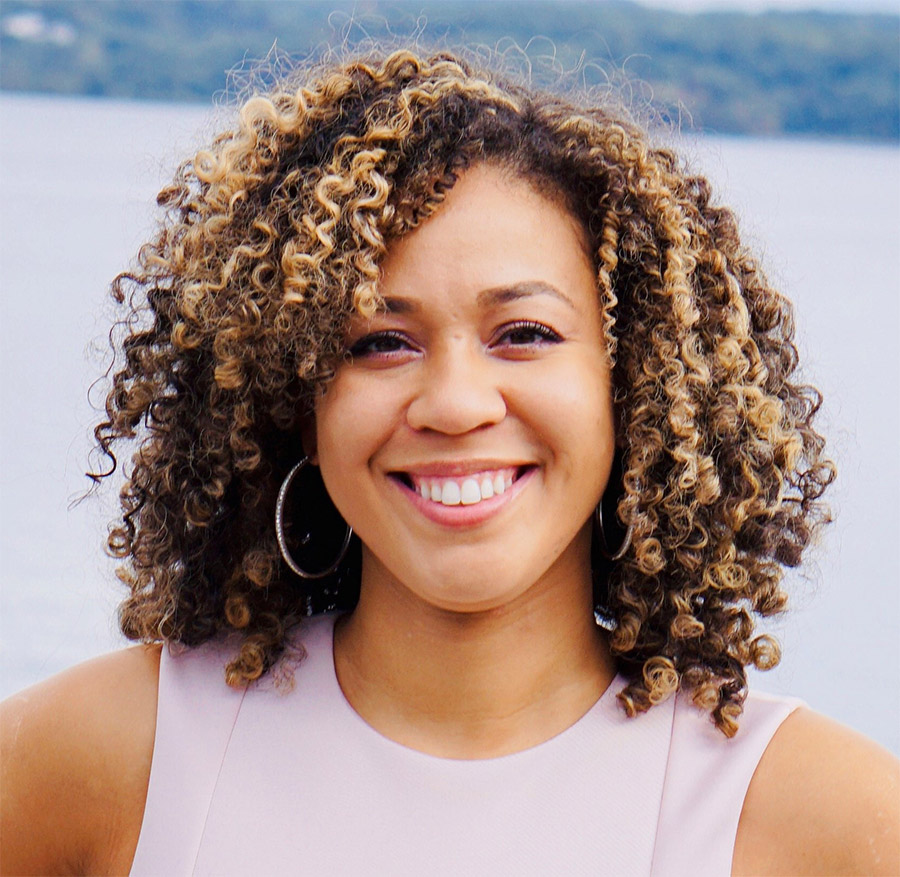
“This is very close to my heart because I am a first-generation college graduate,” said Boykin, who transferred to the Gabelli School in her sophomore year. “It’s work that is easy to be passionate about.”
During her time at Fordham, Boykin participated in the Alumni Mentoring Program, where she connected with a professional who worked in the accounting field. “She gave me real-life knowledge about what it was like to work in public accounting,” Boykin said. “It encouraged me to become a mentor later on in life.”
The early years of her career were spent in the for-profit sector, first at PwC and later at Balchem Corporation, where Boykin rose up the ranks to senior accountant. She also launched the accounting department’s first high school summer internship program and mentored a student from her alma mater.
sense
appeal
As the director of innovation and sensory design at Campbell Soup Company, Rapacki spends a great deal of time thinking about and calibrating every aspect of the way customers experience Campbell’s offerings, which, in addition to soups and the popular Goldfish snack, include other household products like Milano® cookies and Prego® pasta sauces. “Sensory marketing is understanding all the physical qualities of a product,” Rapacki said. “How do you take into account the entire sensory experience, as well as all of the emotional experiences that those products can communicate to a consumer, and do it in a salient way that makes people connect with a brand?”
sense
appeal
As the director of innovation and sensory design at Campbell Soup Company, Rapacki spends a great deal of time thinking about and calibrating every aspect of the way customers experience Campbell’s offerings, which, in addition to soups and the popular Goldfish snack, include other household products like Milano® cookies and Prego® pasta sauces. “Sensory marketing is understanding all the physical qualities of a product,” Rapacki said. “How do you take into account the entire sensory experience, as well as all of the emotional experiences that those products can communicate to a consumer, and do it in a salient way that makes people connect with a brand?”

Leading with Purpose
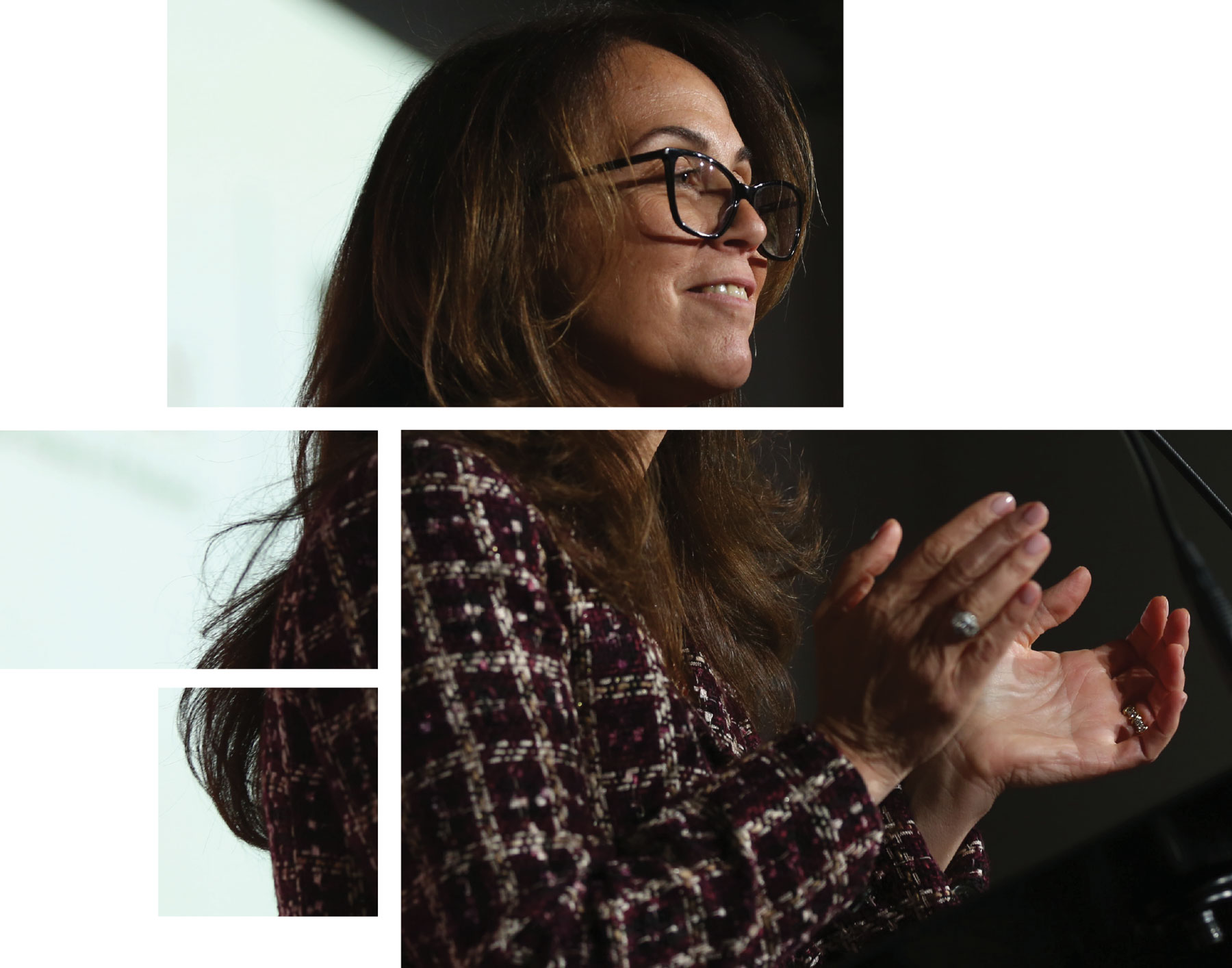
n May 2007, Donna Rapaccioli, PhD, stood at a podium to address graduating seniors for the first time since being confirmed as dean of Fordham’s undergraduate College of Business Administration, as it was known at the time. She shared a story about her interview for the role. If she were to serve as dean, the hiring committee asked, what would she want her legacy to be?
She ran through some possible answers before responding. She could say her legacy would be an impressive new building to replace Faber Hall, a former Jesuit residence on the Rose Hill campus where the business school occupied a few floors. Or she could say that her legacy would be securing a multimillion-dollar donation to strengthen the school’s future.
But “these just weren’t ambitious enough,” Rapaccioli told the senior class and their families. “I knew what I wanted my legacy to be. It was truly simple as legacies go, and yet supremely important to me.”
A Two-Way Street
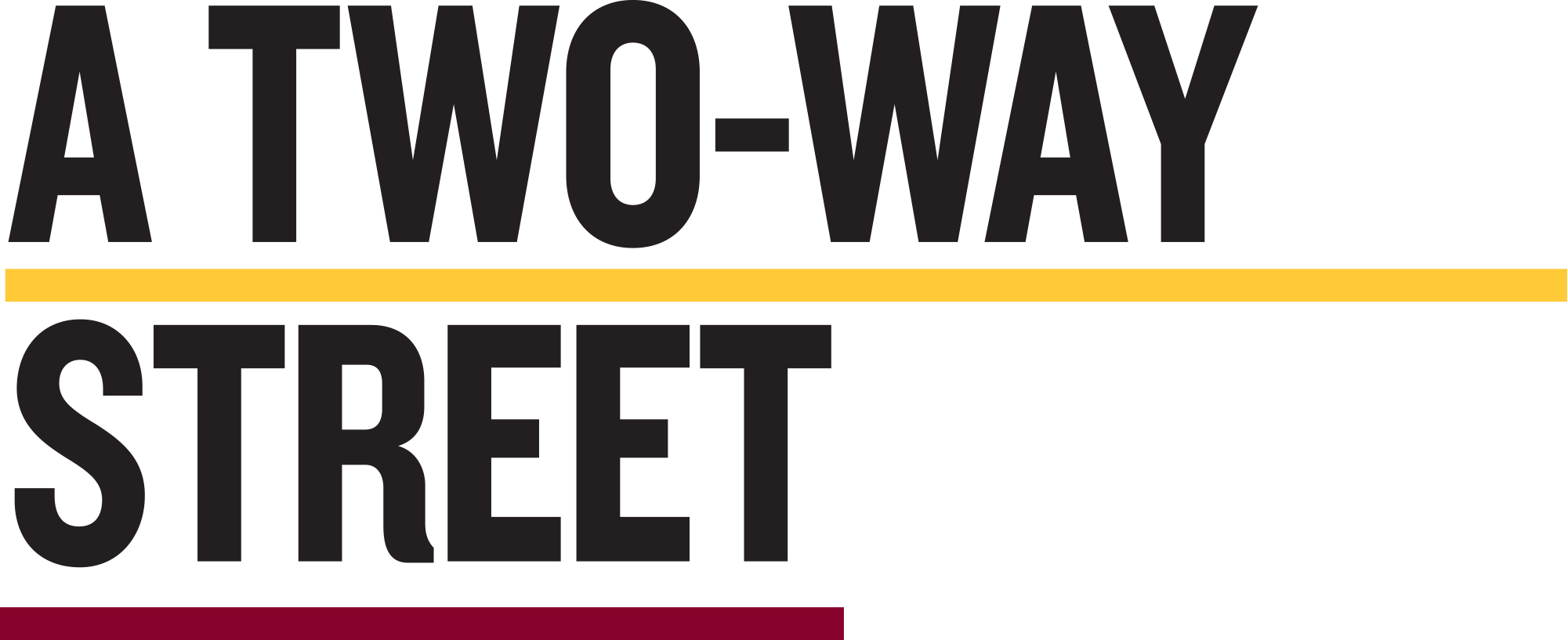
In the classroom or at the workplace, opportunities made possible by bridging academia and industry—internships, consulting projects, competitions, and research—enable business students and faculty to collaborate with leaders across numerous industries and build pathways toward the future.
For corporations, these relationships yield cutting-edge data and strategic plans to enhance efficiencies and improve sustainability practices. They also offer the fresh perspectives of new generations of business professionals as well as consumers, and facilitate the recruitment process by delivering a steady stream of qualified talent who can prove their worth on the job.
“Our interns bring great energy and excitement to our firm,” said EY Campus Recruiter Renee Morrison, BS ’14, MS ’15. “They are eager to learn and they have a fresh perspective. They complement and enrich our culture here and help us to keep a strong brand in the market.”
Faculty Research

Yilu Zhou, PhD, Associate Professor of Information, Technology, and Operations
Without a standard system to ensure accuracy, can these ratings be trusted?
In the working paper, “Protecting Children from Inappropriate Mobile Apps: A Deep Text-Image Multi-Modal Learning Approach,” Zhou explored inconsistencies in the mobile app self-rating system by using machine learning to create a computerized mechanism that analyzes and flags apps containing mature content, such as violence and explicit images.
Catherine Winner, MBA ’09, on Investment Stewardship and the ESG Myth
In a Gabelli School Investment Stewardship Series’ presentation sponsored by the CFA Society New York, the Gabelli Center for Global Security Analysis, and the Museum of American Finance in February, Winner shared her thoughts on the impact of corporate governance on a company and its shareholders, and why ESG is much more than a “feel-good” concept.
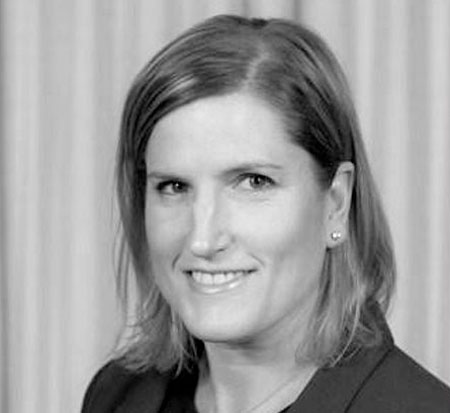

Catherine Winner, MBA ’09, on Investment Stewardship and the ESG Myth
Q: What does corporate governance mean to you?
A: We view corporate governance as the structure within which a company is managed—in other words, how a company is controlled and operated. Our belief is that sound corporate governance creates a framework that allows a company to be managed in the interest of shareholders and broader stakeholders. While the environmental and social components of ESG are increasingly high profile, we see strong governance practices as underlying it all and ultimately key to enabling progress on strategic issues.
Banking and Effective Capital Regulation in Practice:
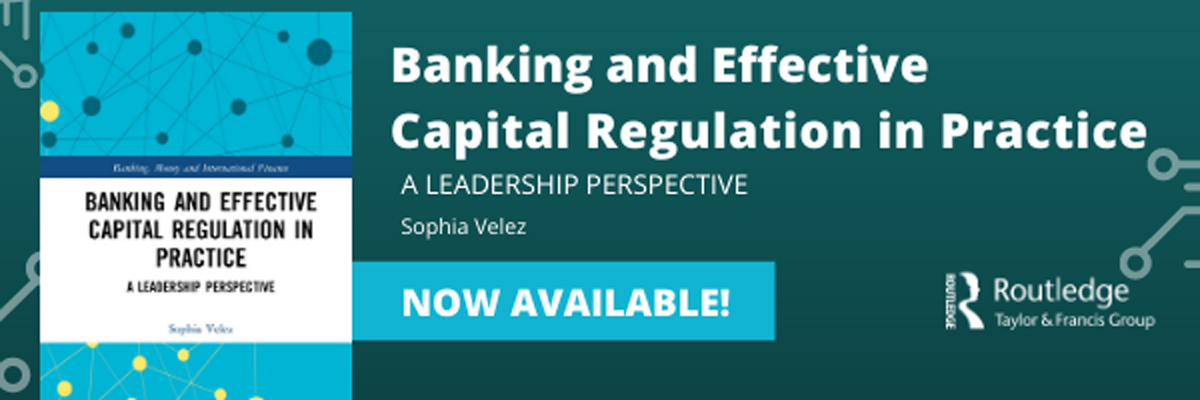
Due to a historical lack of attention to the importance of modeling, measuring and managing risk, senior bank leaders are struggling to implement unified practices within their financial institutions that could address the gaps posed by risky management behavior, rogue trading, liquidity crises, prohibited investments in mortgage-backed securities, and default risks aligned with loans. In her book, Banking and Effective Capital Regulation in Practice: A Leadership Perspective (Routledge, 2021), Sophia Velez, BS ’99, MBA ’06, PhD, CPA, discusses the theories at play between bank managers and shareholders, a topic that gained importance as a result of the banking crisis and fueled the need for more efficient risk management and ethical managerial practices.
Collective Soul
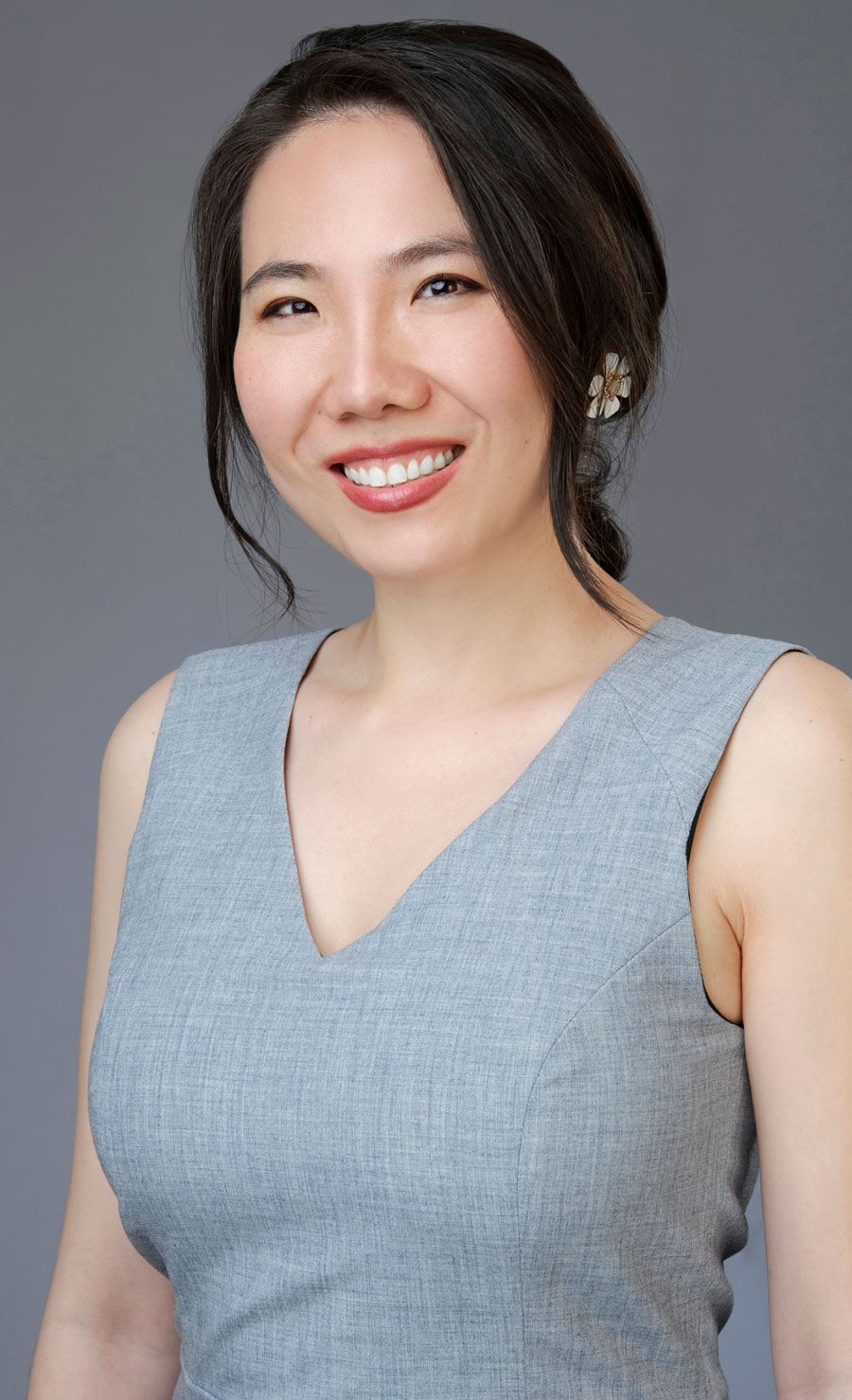
Ren first recognized the power of connectivity among people of different backgrounds offline when she worked as an English translator at an international exhibition center in Beijing and met people from around the world. “It was a big culture shock and I felt like the whole world was connected,” she said. Now an associate professor at the Gabelli School, Ren is weaving her background in business, science, and engineering with her interest in collective online behaviors to explore how they can shape business.


